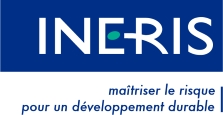Information
Edited on 11/07/2013
As part of the European project Biocopac, a bio-sourced polyester extracted from tomato skin is being studied with a view to developing a substitute for BPA-based epoxy resins.
Edited on 09/26/2013
A university laboratory from Massachusetts, USA, has synthesised an epoxy resin using CBDO instead of BPA, and is now seeking to test this resin on an industrial scale in food tin applications.
Edited on 09/09/2013
In July 2013, the FDA banned the use of BPA in epoxy resins in infant formula containers.
Edited on 09/05/2013
Casino has launched two ranges of appertised products – tomatoes and soups with chunks – packaged in cartons.
Edited on 09/05/2013
The French National Institute for Agricultural Research (INRA) and the chemical engineering school ENSCM Montpellier are conducting research on a new process that will make it possible to avoid using Bisphenol A in the synthesis of epoxy resins, through the use of bio-sourced tannins. The process also makes it possible to substitute epichlorohydrin (which is classed as a carcinogen) with an enzyme when synthesising the resin.
Edited on 07/02/2013
INERIS is currently conducting a survey on BPA use in thermal paper (till receipts, etc.) and the possible solutions for its substitution. As part of this study, the Institute is launching a call for contributions.
Edited on 06/28/2013
In March 2013, the French Agency for Food, Environmental and Occupational Health & Safety (ANSES) published the results of an assessment of the risks posed by BPA to human health, including a review of the current alternatives to BPA and a report on compounds from the bisphenol family. 73 potential alternative solutions were identified.
Edited on 01/23/2013
Low concentrations of Bisphenol A are sufficient to produce a negative effect on human testicles.
Edited on 01/19/2013
The United Nations' Third International Conference on Chemicals Management (ICCM3) was held in September 2012.
Edited on 01/19/2013
One of the substitutes for BPA, Bisphenol S, is suspected to be an endocrine disruptor.

